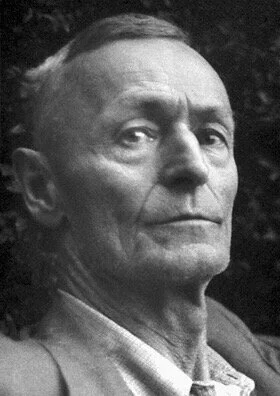It was a slow story, like sipping a warm drink.
It feels like nothing happens, and yet, everything passes in a man’s life, learning, and death. And by the time we realize the moment of animal ecstasy in the divining morning light, it’s gone, slipped by and we wonder how we could have missed it.
It was like a Zen garden, where you must sit quietly.
Hermann Hesse has created his own glass bead game and trying to unravel the story, makes it hold together all the more. Like Hesse’s easier Narcissus and Goldman, there is a Yang-Yin balance between materialism and spirituality. But in The Glass Bead Game, he spirals into a Borgian gyre that never resolves. The elements pull in together in paired clumps, like Beethoven’s 9th, with piano and forte, light and dark, classic and folk, Apollo and Dionysus. Is that the contrast between Knect and Plinio Designori? A perfection surrounds the contemplative and there is still the physical. Or is it the math and the music? The counterpoint surrounds the story. Then you arrive at the end of Knect’s journey (does “Knecht” refer to “servant" or “knight” and is there a difference, for we are on Parsifal’s quest for the grail, are we not?)
But in the end, so what? We are living the life of the enlightened one. Why can’t Hesse just say that to us in a few short pages. Because we need to experience it. And once we follow the complete cycle of Joseph Knect through his orphan beginnings to the head of Castalia, then we can quickly ease into the shorter rotations of the rainmaker, shaman, and yogi.
Each time, for me, it comes back to the animal, diving into the cold water, the physical of the moment.
The book was dull, but so is life. Then in death, all the experiences collapse like dominoes and and we look back at the design and realize how masterfully this was setup. The sun rises, as Nietzsche’s Thus Spoke Zarathustra. But then slips down into the dark depths again, never to again see the light.
Looking back at what I’ve written about The Glass Bead Game, I realize that I’m thrown into metaphor. The book defies definition or meaning. We can speak of pedagogy, enlightenment, utopia, religion, the nature of life, but at the end of the day, the story wonderfully defies such an easy classification.


